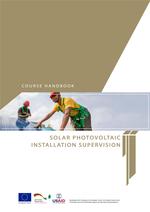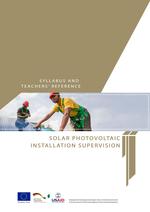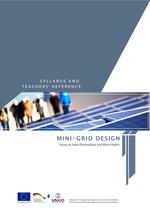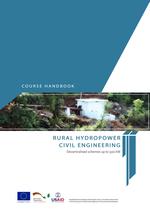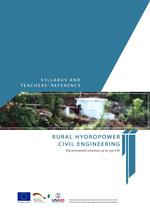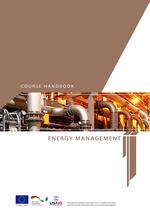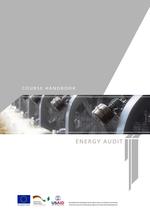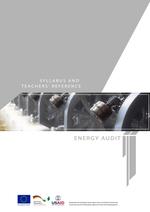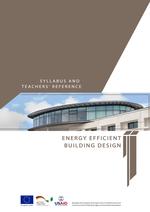Difference between revisions of "Skills Development: Clean Energy Qualifications in Nigeria"
***** (***** | *****) |
***** (***** | *****) |
||
| (26 intermediate revisions by 2 users not shown) | |||
| Line 2: | Line 2: | ||
= Overview<br/> = | = Overview<br/> = | ||
| − | Until 2016, structured training for renewable energy could not be found in Nigeria. There were sporadic training offers which was lacking relevance and recognition. In almost all cases, the problem was lacking of the academic and skills acquisition or targeting the wrong audience, such as rural dwellers. Training on energy efficiency did not exist at all. In short, these offerings were chiefly incompatible with industry and market needs. | + | Until 2016, structured training for renewable energy could not be found in [[Nigeria Energy Situation|Nigeria]]. There were sporadic training offers which was lacking relevance and recognition. In almost all cases, the problem was lacking of the academic and skills acquisition or targeting the wrong audience, such as rural dwellers. Training on energy efficiency did not exist at all. In short, these offerings were chiefly incompatible with industry and market needs. |
| − | The Nigerian Energy Support Programme (NESP) addressed this challenge by introducing relevant qualifications into Nigeria. NESP was funded by the European Union and Germany and it was implemented by the German Agency for International Cooperation (GIZ) in partnership with the Renewable Energy & Energy Efficiency | + | [http://www.energyplatformnigeria.com/index.php/library/skills-development The Nigerian Energy Support Programme (NESP)] addressed this challenge by introducing relevant qualifications into Nigeria. NESP was funded by the European Union and Germany and it was implemented by [https://www.giz.de/en/worldwide/26374.html the German Agency for International Cooperation (GIZ)] in partnership with [https://www.reeep.org/ the Renewable Energy & Energy Efficiency Partnership (REEEP)]which is funded by [https://www.usaid.gov/ the United States Agency for International Development (USAID)] and implemented by [https://www.winrock.org/ Winrock International].<br/> |
| − | '''Seven clean energy qualification were introduced | + | '''Seven clean energy qualification were introduced '''in 2016 (see table below for downloads of the training materials) imparting skills needed by industry with a goal to enhance employment prospects of trainees. Curricula were developed by international and Nigerian practitioners in pursuit of compliance with prevailing competency standards.<ref name="http://www.energyplatformnigeria.com/index.php/library/skills-development">http://www.energyplatformnigeria.com/index.php/library/skills-development</ref> |
| − | + | | |
| − | To ensure training quality, a country-wide certification system is being established. From 2018 an independent | + | '''A network of 12 partners from among training academies and research institutions''' across Nigeria has been empowered to deliver these 7 qualifications. Training partners received support through training syllabi, handbooks and through a depth training in their faculty<ref name="Training locations: http://energyplatformnigeria.com/index.php/training">Training locations: http://energyplatformnigeria.com/index.php/training</ref> using essential training equipment. Until 2020 partners will continue to receive expert guidance in the training delivery to ensure that the training quality meets industry expectations. Training partners offer selected courses against admission fees since 2016.<span style="color:#FF0000"></span> |
| + | |||
| + | To ensure training quality, a country-wide certification system is being established. From 2018 an independent third party will conduct examinations of trainees and qualified professionals against competency standards evolved together with industry. The certification system will ensure training quality, close linkage to market needs, national recognition and periodic course updates in line with market developments. At present, NESP and REEEP are providing the examination and certification service in the interim. | ||
<br/> | <br/> | ||
| − | {| summary="Renewable Energy Training Handbooks and Syllabus - Nigeria" style="width: 764.55px" cellspacing=" | + | = Clean Energy Qualifications: Training Materials<br/> = |
| − | |+ Training Materials - Clean Energy - Nigeria 2017 | + | |
| + | {| summary="Renewable Energy Training Handbooks and Syllabus - Nigeria" style="width: 764.55px" cellspacing="1" cellpadding="1" border="2" align="center" | ||
| + | |+ Training Materials - Clean Energy - Nigeria 2017<ref name="http://www.energyplatformnigeria.com/index.php/library/skills-development">http://www.energyplatformnigeria.com/index.php/library/skills-development</ref> | ||
|- | |- | ||
| − | ! scope="col" style="width: | + | ! scope="col" style="width: 179px" | |
| − | ! scope="col" style="width: | + | Topic |
| − | ! scope="col" style="width: | + | |
| − | ! scope="col" style="width: 163px" | Authors | + | ! scope="col" style="width: 196px" | |
| + | Handbook<br/> | ||
| + | |||
| + | ! scope="col" style="width: 197px" | | ||
| + | Syllabus | ||
| + | |||
| + | ! scope="col" style="width: 163px" | | ||
| + | Authors | ||
| + | |||
|- | |- | ||
| − | | style="width: | + | | style="width: 179px; text-align: center" | |
| − | | style="width: | + | '''Solar PV Installation'''<br/> |
| − | | style="width: | + | |
| + | 160-hours training course for technicians. | ||
| + | |||
| + | | style="width: 196px" | [[File:Solar PV Installation - Training Handbook 2017.pdf|thumb|center|150px|Download|alt=Solar PV Installation - Training Handbook 2017.pdf]]<p style="text-align: center">Course Handbook<br/>3rd Edition • March 2017</p> | ||
| + | | style="width: 197px" | [[File:Solar PV Installation - Syllabus 2017.pdf|thumb|center|150px|Download|alt=Solar PV Installation - Syllabus 2017.pdf]]<p style="text-align: center">Syllabus and Teacher’s Reference.<br/>3rd Edition • March 2017</p> | ||
| style="width: 163px" | Dr. Helmut Städter<br/>Olatunde Isiolaotan<br/>Hartmut Androsch<br/> | | style="width: 163px" | Dr. Helmut Städter<br/>Olatunde Isiolaotan<br/>Hartmut Androsch<br/> | ||
|- | |- | ||
| − | | style="width: | + | | style="width: 179px; text-align: center" | |
| − | | style="width: | + | '''Solar PV Installation Supervision'''<br/> |
| − | | style="width: | + | |
| + | 240-hours training course for electricians | ||
| + | |||
| + | | style="width: 196px" | [[File:Solar PV Installation Supervision- Training Handbook- Nigeria 2017.pdf|thumb|center|150px|Download|alt=Solar PV Installation Supervision- Training Handbook- Nigeria 2017.pdf]]<p style="text-align: center">Course Handbook<br/>3rd Edition • March 2017</p> | ||
| + | | style="width: 197px" | [[File:Nigeria Training SPVIS-Syllabus-2017.pdf|thumb|center|150px|Download|alt=Nigeria Training SPVIS-Syllabus-2017.pdf]]<p style="text-align: center">Syllabus & Teacher’s Reference<br/>3rd Edition • March 2017</p> | ||
| style="width: 163px" | Olatunde Isiolaotan<br/>Hartmut Androsch<br/> | | style="width: 163px" | Olatunde Isiolaotan<br/>Hartmut Androsch<br/> | ||
|- | |- | ||
| − | | style="width: | + | | style="width: 179px; text-align: center" | |
| − | | style="width: | + | '''Mini-Grid Design'''<br/> |
| − | | style="width: | + | |
| + | 35-day training course for engineers | ||
| + | |||
| + | | style="width: 196px" | [[File:Mini-Grid Design-Training Handbook- Nigeria 2017.pdf|thumb|center|150px|Download|alt=Mini-Grid Design-Training Handbook- Nigeria 2017.pdf]]<p style="text-align: center">Course Handbook<br/>2nd Edition • March 2017</p> | ||
| + | | style="width: 197px" | [[File:Mini-Grid Design-Training Syllabus -Nigeria 2017.pdf|thumb|center|150px|Download|alt=Mini-Grid Design-Training Syllabus -Nigeria 2017.pdf]]<p style="text-align: center">Syllabus & Teacher’s Reference<br/>2nd Edition • March 2017</p> | ||
| style="width: 163px" | Hartmut Androsch<br/>Robert Foster<br/>Ron Orozco<br/>Olatunde Isiolaotan<br/> | | style="width: 163px" | Hartmut Androsch<br/>Robert Foster<br/>Ron Orozco<br/>Olatunde Isiolaotan<br/> | ||
|- | |- | ||
| − | | style="width: | + | | style="width: 179px; text-align: center" | |
| − | | style="width: | + | '''Rural Hydropower Civil Engineering'''<br/> |
| − | | style="width: | + | |
| + | 3-week training course for civil engineers | ||
| + | |||
| + | | style="width: 196px" | [[File:Rural Hydropower Civil Engineering-Training Handbook- Nigeria 2017.pdf|thumb|center|150px|Download|alt=Rural Hydropower Civil Engineering-Training Handbook- Nigeria 2017.pdf]]<p style="text-align: center">Course Handbook <br/>3rd Edition • March 2017</p> | ||
| + | | style="width: 197px" | [[File:Rural Hydropower Civil Engineering-Training Syllabus-2017.pdf|thumb|center|150px|Download|alt=Rural Hydropower Civil Engineering-Training Syllabus-2017.pdf]]<p style="text-align: center">Syllabus & Teacher’s Reference<br/>3nd Edition • March 2017</p> | ||
| style="width: 163px" | V. Ramasubramanian<br/>Adhishesh Hanasoge<br/>Ajoy Karki<br/>Dr. Helmut Städter<br/> | | style="width: 163px" | V. Ramasubramanian<br/>Adhishesh Hanasoge<br/>Ajoy Karki<br/>Dr. Helmut Städter<br/> | ||
|- | |- | ||
| − | | style="width: | + | | style="width: 179px; text-align: center" | |
| − | | style="width: | + | '''Energy Management '''<br/> |
| − | | style="width: | + | |
| + | 160-hours training course for engineers | ||
| + | |||
| + | | style="width: 196px" | [[File:Energy Management-Training Handbook- Nigeria 2017.pdf|thumb|center|150px|Download|alt=Energy Management-Training Handbook- Nigeria 2017.pdf]]<p style="text-align: center">Course Handbook<br/>2nd Edition • May 2017</p> | ||
| + | | style="width: 197px" | [[File:Energy Management-Training Syllabus- Nigeria 2017.pdf|thumb|center|150px|Download|alt=Energy Management-Training Syllabus- Nigeria 2017.pdf]]<p style="text-align: center">Syllabus & Teacher’s Reference<br/>2nd Edition • May 2017</p> | ||
| style="width: 163px" | | | style="width: 163px" | | ||
Dr. Helmut Städter<br/>Kai Hillebrect<br/>Kishan K. Chakarvarti<br/>Josef Buchinger<br/>André Möller<br/>Habeeb Salawu<br/>Dr. Emmanuael Ogedengbe<br/>Dr. Albrecht Kaupp | Dr. Helmut Städter<br/>Kai Hillebrect<br/>Kishan K. Chakarvarti<br/>Josef Buchinger<br/>André Möller<br/>Habeeb Salawu<br/>Dr. Emmanuael Ogedengbe<br/>Dr. Albrecht Kaupp | ||
|- | |- | ||
| − | | style="width: | + | | style="width: 179px; text-align: center" | |
| − | | style="width: | + | '''Energy Audit '''<br/> |
| − | | style="width: | + | |
| + | 120-hours training course for architects and engineers | ||
| + | |||
| + | | style="width: 196px" | [[File:Energy Audit -Training Handbook- Nigeria 2017.pdf|thumb|center|150px|Download|alt=Energy Audit -Training Handbook- Nigeria 2017.pdf]]<p style="text-align: center">Course Handbook<br/>2nd Edition • May 2017</p> | ||
| + | | style="width: 197px" | [[File:Energy Audit-Training Syllabus- Nigeria 2017.pdf|thumb|center|150px|Download|alt=Energy Audit-Training Syllabus- Nigeria 2017.pdf]]<p style="text-align: center">Syllabus & Teacher’s Reference<br/>2nd Edition • May 2017</p> | ||
| style="width: 163px" | Dr. Helmut Städter<br/>Kai Hillebrect<br/>Kishan K. Chakarvarti<br/>Josef Buchinger<br/>André Möller<br/>Habeeb Salawu<br/>Dr. Emmanuael Ogedengbe<br/>Dr. Albrecht Kaupp | | style="width: 163px" | Dr. Helmut Städter<br/>Kai Hillebrect<br/>Kishan K. Chakarvarti<br/>Josef Buchinger<br/>André Möller<br/>Habeeb Salawu<br/>Dr. Emmanuael Ogedengbe<br/>Dr. Albrecht Kaupp | ||
|- | |- | ||
| − | | style="width: | + | | style="width: 179px; text-align: center" | |
| − | | style="width: | + | '''Energy Efficient Building Design '''<br/> |
| − | | style="width: | + | |
| + | 120-hours training course for architects and engineers | ||
| + | |||
| + | | style="width: 196px" | [[File:Nigeria Energy Efficiency Building Design Training -Handbook-2017.pdf|thumb|center|150px|Download|alt=Nigeria Energy Efficiency Building Design Training -Handbook-2017.pdf]]<p style="text-align: center">Course Handbook<br/>2nd Edition • February 2017</p> | ||
| + | | style="width: 197px" | [[File:Energy Efficient Building Design-Training Syllabus- Nigeria 2017.pdf|thumb|center|150px|Download|alt=Energy Efficient Building Design-Training Syllabus- Nigeria 2017.pdf]]<p style="text-align: center">Syllabus & Teacher’s Reference<br/>2nd Edition • February 2017</p> | ||
| style="width: 163px" | Prof. Helmut Müller<br/>Francesco Sasso<br/>Arc. Anthony Okoye<br/>Dr. Helmut Städter<br/>Olatunde Isiolaotan | | style="width: 163px" | Prof. Helmut Müller<br/>Francesco Sasso<br/>Arc. Anthony Okoye<br/>Dr. Helmut Städter<br/>Olatunde Isiolaotan | ||
|} | |} | ||
| Line 62: | Line 102: | ||
<br/> | <br/> | ||
| − | < | + | = Competency Standards 2016 = |
| + | |||
| + | <span style="font-family: arial, helvetica, sans-serif; font-size: 10pt">Competency Standards for Clean Energy were evolved with industry through the Energy Platform Nigeria and selected skills councils. They define the skills and knowledge relevant for employers today, providing the reference for curriculum development and certification. </span>Find the Competency Standards [http://energyplatformnigeria.com/index.php/library/skills-development here]. | ||
| + | |||
| + | It is expected that they will be updatd in Nigeria in 2020. However, it is unclear who will publish it and where. | ||
<br/> | <br/> | ||
| Line 68: | Line 112: | ||
<br/> | <br/> | ||
| − | <br/> | + | = Further Information<br/> = |
| − | <br/> | + | *[http://www.energyplatformnigeria.com/index.php/library/skills-development Energy Platform of Nigeria] |
| + | *[https://www.giz.de/en/worldwide/26374.html The German Agency for International Cooperation (GIZ) - NESP Program - Nigeria] | ||
| + | *[https://www.reeep.org/ The Renewable Energy & Energy Efficiency Partnership (REEEP)] | ||
| + | *[https://www.usaid.gov/ USAID] | ||
| + | *[https://www.winrock.org/ Winrock International] | ||
| + | *Category: [[:Category:Training Materials|Training Materials]] | ||
| + | *[[Training Materials - Off Grid Systems|Training Materials - Off Grid Systems]]<br/> | ||
| + | *Indonesia: [[Community Management Guide for Mini-grid|Community Management Guide for Mini-grids]] | ||
| + | *Nepal: [[Overview_on_Training_Modules_for_CREEs|Overview on Training Modules for CREEs]] | ||
<br/> | <br/> | ||
| Line 76: | Line 128: | ||
<br/> | <br/> | ||
| − | = | + | = References = |
| − | + | <references /> | |
| − | + | [[Category:Hydro]] | |
| + | [[Category:Energy_Efficiency_in_Buildings]] | ||
| + | [[Category:Mini-grid]] | ||
| + | [[Category:Solar]] | ||
| + | [[Category:Capacity_Development]] | ||
| + | [[Category:Training_Materials]] | ||
| + | [[Category:User_Training]] | ||
Latest revision as of 15:03, 19 July 2017
Overview
Until 2016, structured training for renewable energy could not be found in Nigeria. There were sporadic training offers which was lacking relevance and recognition. In almost all cases, the problem was lacking of the academic and skills acquisition or targeting the wrong audience, such as rural dwellers. Training on energy efficiency did not exist at all. In short, these offerings were chiefly incompatible with industry and market needs.
The Nigerian Energy Support Programme (NESP) addressed this challenge by introducing relevant qualifications into Nigeria. NESP was funded by the European Union and Germany and it was implemented by the German Agency for International Cooperation (GIZ) in partnership with the Renewable Energy & Energy Efficiency Partnership (REEEP)which is funded by the United States Agency for International Development (USAID) and implemented by Winrock International.
Seven clean energy qualification were introduced in 2016 (see table below for downloads of the training materials) imparting skills needed by industry with a goal to enhance employment prospects of trainees. Curricula were developed by international and Nigerian practitioners in pursuit of compliance with prevailing competency standards.[1]
A network of 12 partners from among training academies and research institutions across Nigeria has been empowered to deliver these 7 qualifications. Training partners received support through training syllabi, handbooks and through a depth training in their faculty[2] using essential training equipment. Until 2020 partners will continue to receive expert guidance in the training delivery to ensure that the training quality meets industry expectations. Training partners offer selected courses against admission fees since 2016.
To ensure training quality, a country-wide certification system is being established. From 2018 an independent third party will conduct examinations of trainees and qualified professionals against competency standards evolved together with industry. The certification system will ensure training quality, close linkage to market needs, national recognition and periodic course updates in line with market developments. At present, NESP and REEEP are providing the examination and certification service in the interim.
Clean Energy Qualifications: Training Materials
|
Topic |
Handbook |
Syllabus |
Authors |
|---|---|---|---|
|
Solar PV Installation 160-hours training course for technicians. |
Course Handbook |
Syllabus and Teacher’s Reference. |
Dr. Helmut Städter Olatunde Isiolaotan Hartmut Androsch |
|
Solar PV Installation Supervision 240-hours training course for electricians |
Course Handbook |
Syllabus & Teacher’s Reference |
Olatunde Isiolaotan Hartmut Androsch |
|
Mini-Grid Design 35-day training course for engineers |
Course Handbook |
Syllabus & Teacher’s Reference |
Hartmut Androsch Robert Foster Ron Orozco Olatunde Isiolaotan |
|
Rural Hydropower Civil Engineering 3-week training course for civil engineers |
Course Handbook |
Syllabus & Teacher’s Reference |
V. Ramasubramanian Adhishesh Hanasoge Ajoy Karki Dr. Helmut Städter |
|
Energy Management 160-hours training course for engineers |
Course Handbook |
Syllabus & Teacher’s Reference |
Dr. Helmut Städter |
|
Energy Audit 120-hours training course for architects and engineers |
Course Handbook |
Syllabus & Teacher’s Reference |
Dr. Helmut Städter Kai Hillebrect Kishan K. Chakarvarti Josef Buchinger André Möller Habeeb Salawu Dr. Emmanuael Ogedengbe Dr. Albrecht Kaupp |
|
Energy Efficient Building Design 120-hours training course for architects and engineers |
Course Handbook |
Syllabus & Teacher’s Reference |
Prof. Helmut Müller Francesco Sasso Arc. Anthony Okoye Dr. Helmut Städter Olatunde Isiolaotan |
Competency Standards 2016
Competency Standards for Clean Energy were evolved with industry through the Energy Platform Nigeria and selected skills councils. They define the skills and knowledge relevant for employers today, providing the reference for curriculum development and certification. Find the Competency Standards here.
It is expected that they will be updatd in Nigeria in 2020. However, it is unclear who will publish it and where.
Further Information
- Energy Platform of Nigeria
- The German Agency for International Cooperation (GIZ) - NESP Program - Nigeria
- The Renewable Energy & Energy Efficiency Partnership (REEEP)
- USAID
- Winrock International
- Category: Training Materials
- Training Materials - Off Grid Systems
- Indonesia: Community Management Guide for Mini-grids
- Nepal: Overview on Training Modules for CREEs



